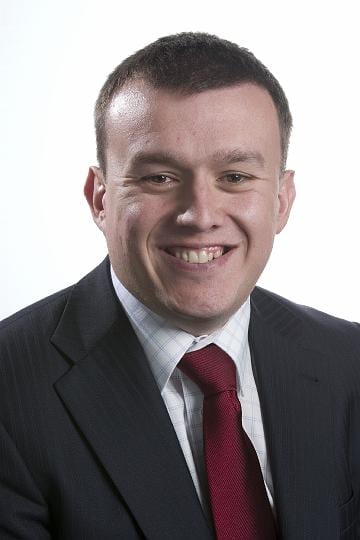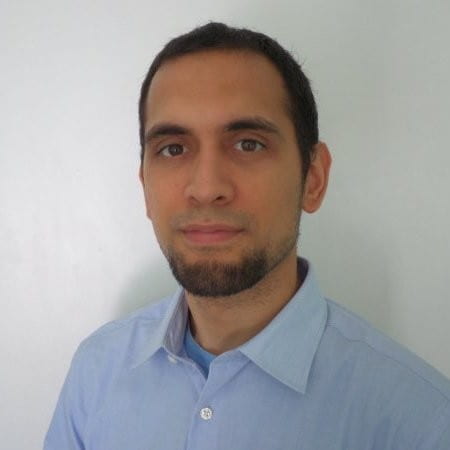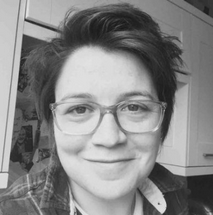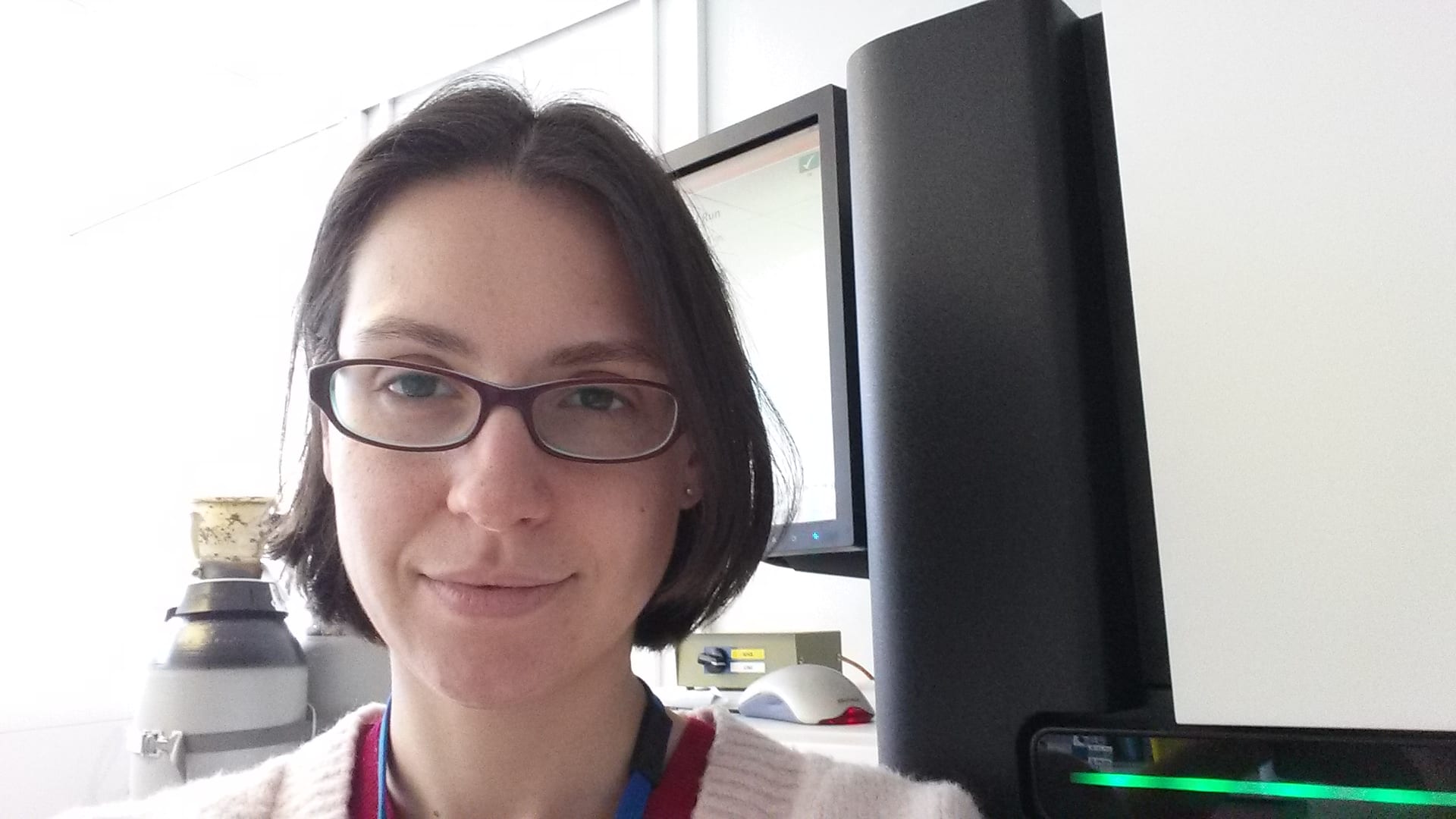 Dr Simon Child has a PhD in Space Physics and is now a Solutions Engineer at Tessella, an organisation that “uses data science to accelerate evidence-based decision making, allowing businesses to improve profitability, reduce costs, streamline operations, avoid errors and out-innovate the competition”. Simon spoke at one of our Careers in Technology forums for researchers, and then kindly agreed to chat about his career again for our blog.
Dr Simon Child has a PhD in Space Physics and is now a Solutions Engineer at Tessella, an organisation that “uses data science to accelerate evidence-based decision making, allowing businesses to improve profitability, reduce costs, streamline operations, avoid errors and out-innovate the competition”. Simon spoke at one of our Careers in Technology forums for researchers, and then kindly agreed to chat about his career again for our blog.
How did you move from academia to your current role?
My PhD was in Space Physics, working primarily with data taken by the Ulysses Spacecraft. As that mission was coming to a close, to stay in academia would have required a shift in research focus. Also, I was not sure if the nomadic life of a postdoc was something I was truly interested in doing long term (a couple of years here and there, moving where the research funding takes you). As such, I started looking for a career in industry. I started my job search with a clear idea of what I was looking for: something that would challenge me, somewhere I would have interesting problems to get my teeth into and continue learning and developing and, if possible, somewhere I could retain some level of contact with the space industry.
I put my CV on Monster and was contacted by a couple of recruitment agencies who put me forward for a range of different roles. Knowing what I know now, that approach had both benefits and drawbacks. On the positive side I was made aware of companies and opportunities that I hadn’t uncovered on my own and the consultants helped me to improve my CV. However, I now realise that the majority of companies do not use agencies for their recruitment and have their own internal recruitment teams, especially for graduate and postgraduate entry level roles. Tessella is one such company.
Early on in my academic career, I had flagged up Tessella as one of the companies I was interested in applying to. I was attracted by their focus on training and development and the opportunity to work across a wide range of technologies and sectors, including the space industry. After I applied, I was delighted to be invited to a first interview and then a second interview assessment day. During the recruitment process, I was impressed to find out about the company’s portfolio of clients and projects, as well as the similar mind-set of the people I met. When a job offer came through, it was not a hard decision to accept it.
What does a normal working day look like for you?
I am currently a Solutions Engineer at Tessella and what I do day-to-day depends on the project I am working on. My typical activities include: systems engineering (engineering trade-off studies, producing technical requirements specifications, designing algorithms to be used in a Radar DSPU); systems architecture (how the algorithms will talk to the rest of the real-time software within the system during flight); simulation and modelling; data analysis/machine learning; control engineering; software engineering. Ultimately I am helping our clients solve some of their really difficult technical challenges.
The majority of my work is computer based and I also regularly attend technical meetings, with both clients and colleagues. Depending on the project I could be working full time in the Tessella office in Stevenage (where I am based), or spending some or all of my time working on client sites alongside their engineers and scientists.
My role does not involve much long-distance travelling – each Tessella office tends to work predominately with organisations in close proximity. However there have been opportunities for colleagues to spend extended periods of time working with clients in France, Germany and Spain, as well as with colleagues in our offices in the Netherlands and USA.
What are the best things about working in your role?
I really value the relationships I have built up with both colleagues and clients. Tessella recruits graduates and postgraduates from science, engineering and mathematics, so my colleagues are all like-minded, intelligent people. That said, everyone has expertise in different areas, from different domain knowledge to various technical skills, so there is a lot of collaboration and innovative thinking to solve clients’ problems, which is also one of the best things about working here. I also enjoy the work that we do – projects are always challenging and interesting and I am always learning something new.
What are the worst bits?
To some people, the prospect of starting out on a project with an unfamiliar, complex problem to solve may seem daunting, but I relish the challenge. Starting from scratch and building up a solution by employing my knowledge and skills within my team is really satisfying, especially when what I have created is successfully delivered to the client.
Is a PhD essential for your role?
A PhD is not essential to work at Tessella; we also recruit people with MSc and BSc qualifications. However, it certainly helps to have a PhD. I use a lot of the skills that I developed during my PhD, including data analysis, programming, computational modelling, data visualisation, verbal and written communication, problem solving, time management, mentoring, networking, and more. The reason over half of the company have PhDs is because all of those skills, which have been developed further during postgraduate studies, are invaluable in solving the complex challenges facing our clients. The ability to build relationships with clients is arguably just as important as your technical skills, so confidence and communication skills are also important.
Where do you see yourself going from here?
Every year, I have an appraisal with my manager, part of which includes reviewing and updating my career development plan. This contains things like my long term career goals and what I need to do in the short term in order to achieve them, as well as what training I need to undertake for my immediate project needs. The appraisal is also a review of my performance – good and bad – over the previous twelve months so that I can identify what areas I need to work on in order to guide my career in a particular direction. Feedback for appraisals is sought from all areas across the company, from directors to any technical or head office staff you have worked with.
Over the course of my career, I have chosen to stay on a broadly technical career path, from a junior developer to leading project teams. However, I have also taken opportunities to take formal training in other areas, including, project management, technical sales and business analysis. I have also had the opportunity to spend some time working in those roles, to give me an idea of what is involved should I wish to transfer into one of them in the future.
I am also a line manager, currently to one junior technical member of staff. I really enjoy this part of my role: working with him early on in his career, helping turn all those ideas and thoughts into a career plan, then helping him reach his goals. I am looking forward to managing more staff in the future.
What top tips would you pass on to a researcher interested in this type of work?
Unless you are looking for a job that will specifically utilise your PhD research, it will be your transferable skills that make you valuable to an organisation, for example, problem solving, teamwork, presenting complex ideas, debating issues, etc. Identify your strong and weak areas and take advantage of opportunities to develop and improve them. You can also make yourself more attractive to potential employers by developing yourself outside of your PhD, for example, building your confidence, public speaking, leadership, etc., so get involved with new hobbies and extra-curricular activities.
Sparkly technology pic taken from Octavio Santos Neto
 Dr Ardavan Alamir has a PhD in Physics and now works in cyber-security at G-Research. We caught up with Ardavan to hear about his role and career journey so far.
Dr Ardavan Alamir has a PhD in Physics and now works in cyber-security at G-Research. We caught up with Ardavan to hear about his role and career journey so far. Close
Close









